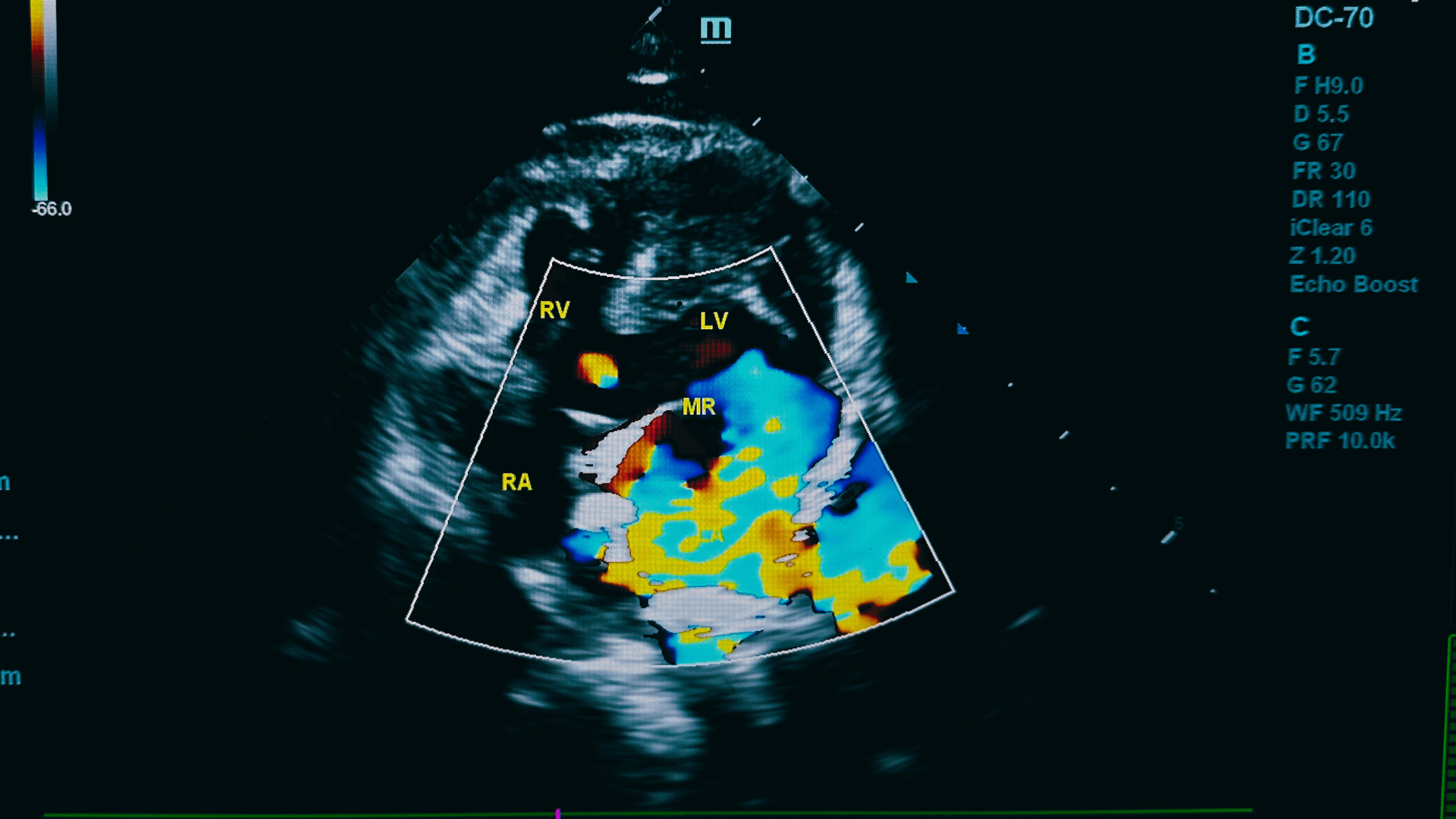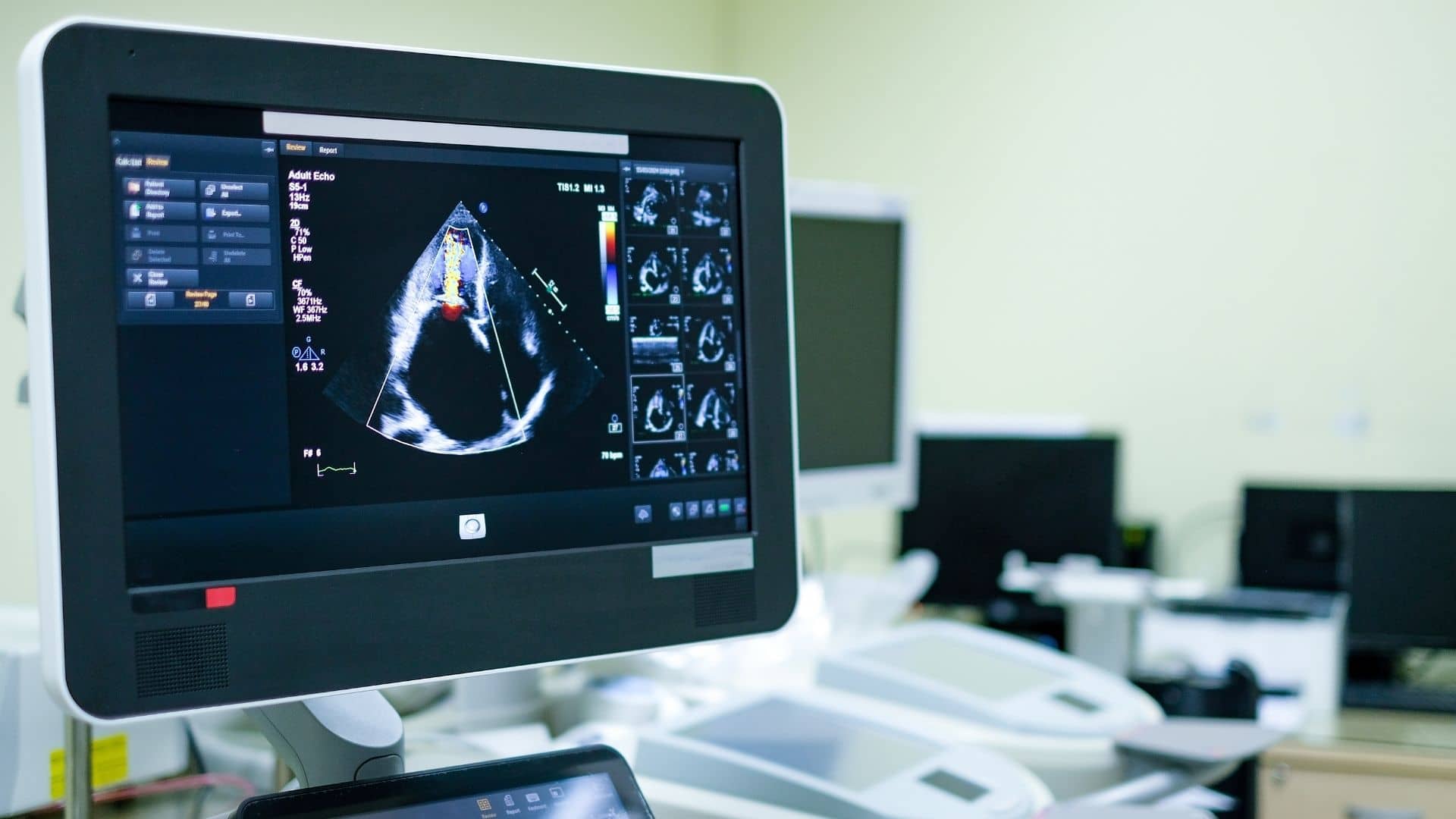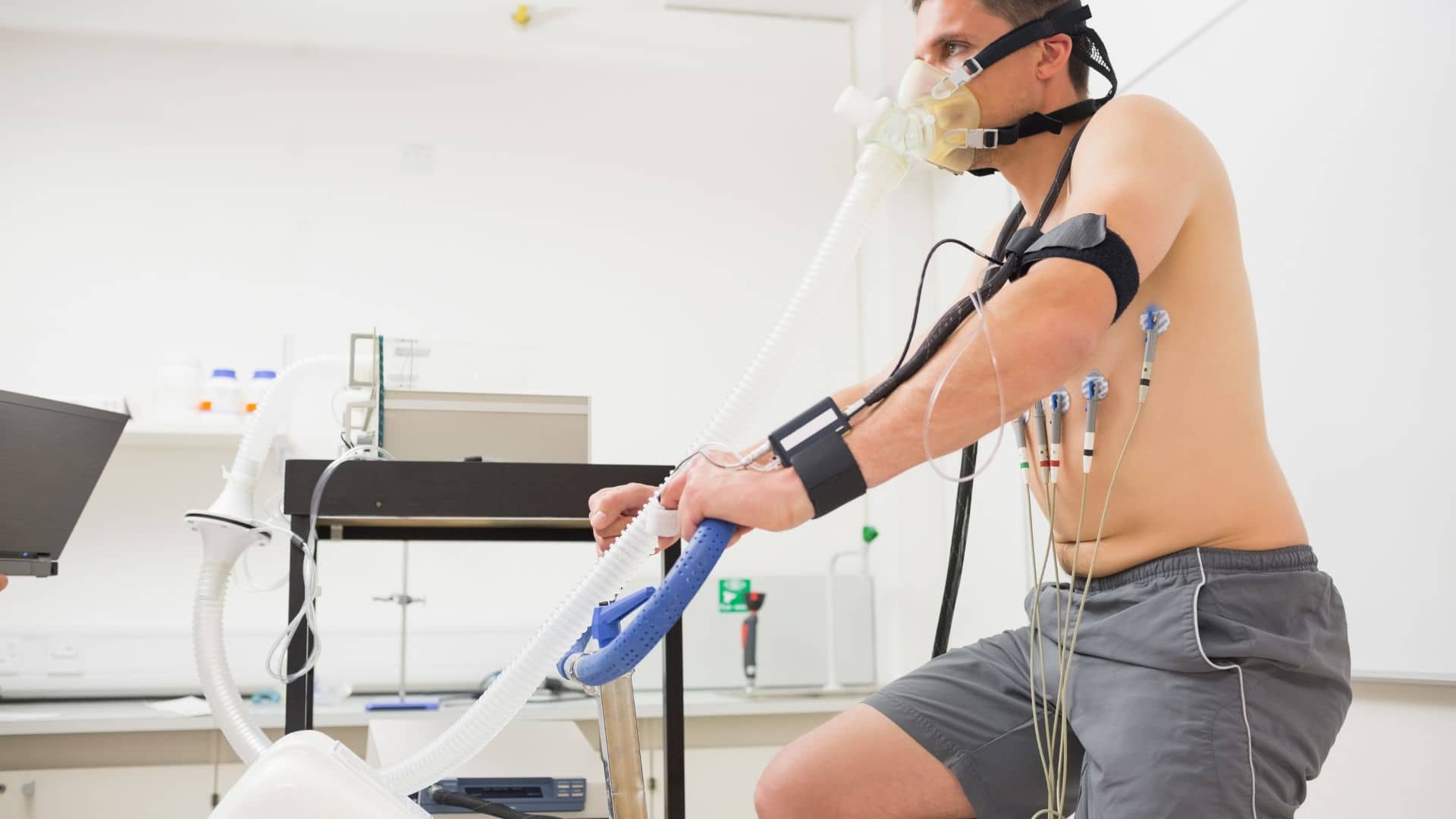Article Summary
- Cardiology CPT codes serve as the foundation for accurate cardiovascular procedure billing and reimbursement
- Common cardiology CPT codes include diagnostic procedures (93000-93010), echocardiograms (93306-93308), and stress tests (93015-93017)
- Proper code selection directly impacts revenue cycle performance and claim approval rates
- Documentation requirements vary by procedure complexity and must align with CPT code specifications
- Regular code updates and modifier usage affect billing accuracy and compliance
- Professional billing services can reduce coding errors and accelerate reimbursement timelines
What Are Cardiology CPT Codes?
Cardiology CPT codes represent the standardized numeric system used to identify and bill for cardiovascular procedures and services. The American Medical Association maintains these Current Procedural Terminology codes, which healthcare providers use to communicate with insurance companies about performed services. Each cardiology CPT code corresponds to a specific procedure, diagnostic test, or treatment within cardiovascular care.
Medical billing professionals rely on accurate cardiology CPT codes to process claims efficiently and secure appropriate reimbursement for cardiac services. These codes range from basic electrocardiograms to complex interventional procedures, with each code carrying specific documentation requirements and reimbursement rates.
The cardiology specialty encompasses numerous diagnostic and therapeutic procedures, making proper code selection critical for practice revenue optimization. Incorrect coding can result in claim denials, delayed payments, and potential compliance issues with regulatory authorities.

Essential Cardiology CPT Codes for Practice Success
Electrocardiogram Procedures
The 93000 CPT code covers the complete electrocardiogram with interpretation and report. This fundamental cardiac diagnostic tool measures electrical activity in the heart and serves as a baseline assessment for many cardiovascular conditions. The procedure includes electrode placement, rhythm recording, and physician interpretation of results.
Healthcare providers frequently use the 93010 CPT code for electrocardiogram interpretation and report only. This code applies when the technical component occurs separately from the professional interpretation, often in hospital or shared equipment scenarios.
| CPT Code | Description | Components |
| 93000 | EKG with interpretation | Complete service including technical and professional components |
| 93010 | EKG interpretation only | Professional component for physician interpretation |
Holter Monitor Services
The 93224 CPT code represents continuous electrocardiographic monitoring for 24 hours, including analysis and interpretation. This extended monitoring captures cardiac rhythm abnormalities that might not appear during brief office visits. Physicians use Holter monitoring to diagnose arrhythmias, assess medication effectiveness, and evaluate symptoms like palpitations or syncope.
Extended cardiac monitoring with the 93268 CPT code covers patient-activated event recording systems. These devices allow patients to record cardiac events when symptoms occur, providing valuable diagnostic information for intermittent cardiac conditions.
Echocardiogram Procedures
The 93306 CPT code includes complete transthoracic echocardiography with interpretation and report. This non-invasive imaging technique evaluates heart structure and function through ultrasound technology. The complete study examines all cardiac chambers, valves, and major vessels.
Limited echocardiographic studies use the 93308 CPT code when fewer cardiac structures require evaluation. This abbreviated version focuses on specific areas of concern rather than comprehensive cardiac assessment.
The 93307 CPT code covers complete transthoracic echocardiography with real-time image acquisition and interpretation. This code applies to comprehensive studies that include all standard echocardiographic views and measurements.
| CPT Code | Procedure Type | Scope |
| 93306 | Complete echo with interpretation | Full cardiac evaluation |
| 93307 | Complete echo with real-time imaging | Comprehensive study with live imaging |
| 93308 | Limited echo study | Focused evaluation of specific structures |
Stress Testing Procedures
The 93015 CPT code encompasses cardiovascular stress testing with continuous electrocardiographic monitoring, physician supervision, and interpretation. This comprehensive code includes the complete stress test service from preparation through final report generation.
Cardiovascular stress test supervision uses the 93016 CPT code when physicians provide only the supervision component of the testing procedure. This code separates professional oversight from technical performance and interpretation components.
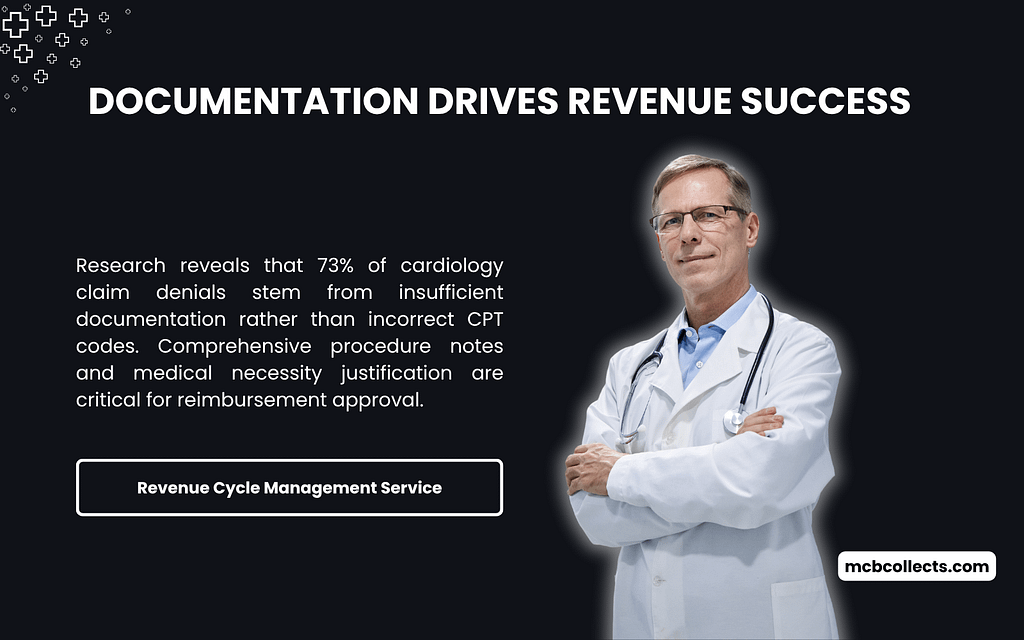
The 93017 CPT code covers stress test interpretation and report preparation only. Medical facilities often use this code when the testing occurs at separate locations from where physicians provide interpretation services.
Stress Echocardiography
The 93350 CPT code represents stress echocardiography with a complete cardiovascular stress test. This combined procedure evaluates cardiac function under exercise or pharmacological stress conditions while obtaining real-time cardiac imaging.
Stress echocardiography with pharmacological stress uses the 93351 CPT code when medications rather than exercise create cardiac stress conditions. This approach accommodates patients who cannot perform adequate exercise testing due to physical limitations.
Documentation Requirements for Cardiology CPT Codes
Proper documentation forms the foundation of successful cardiology billing and directly impacts claim approval rates. Each cardiology CPT code requires specific documentation elements to support medical necessity and justify the performed procedure.
Electrocardiogram documentation must include the medical indication for testing, complete interpretation of rhythm and abnormalities, and clinical correlation with patient symptoms. The physician’s signature and date complete the required documentation package.
Echocardiogram reports require detailed descriptions of cardiac structures, measurements of chamber sizes and wall thickness, assessment of valve function, and evaluation of overall cardiac performance. Documentation must demonstrate medical necessity through patient symptoms, physical examination findings, or follow-up requirements.
Stress testing documentation encompasses pre-test evaluation, continuous monitoring records, blood pressure responses, symptom assessment, and post-exercise recovery data. Physicians must document any complications, test termination reasons, and clinical impressions based on results.
| Documentation Element | Required Information | Purpose |
| Medical indication | Symptoms, history, or clinical findings | Establishes medical necessity |
| Procedure Details | Technical aspects and findings | Supports code selection |
| Physician interpretation | Clinical assessment and recommendations | Justifies professional component |
Common Billing Challenges with Cardiology CPT Codes
Medical practices frequently encounter specific billing challenges when processing cardiology CPT codes. Claim denials often result from insufficient documentation, incorrect modifier usage, or improper code selection for the performed procedure.
Insurance companies regularly audit cardiology claims due to the high reimbursement values associated with cardiac procedures. Practices must maintain comprehensive documentation to support medical necessity and defend against potential audit requests.
Code bundling represents another significant challenge in cardiology billing. Many cardiac procedures include multiple components that insurance companies consider part of a single service. Professional billing services help practices navigate these complex bundling rules to maximize appropriate reimbursement.
The frequency of CPT code updates affects cardiology billing accuracy. Annual code revisions, new procedure additions, and deleted codes require continuous education and system updates to maintain billing compliance.
Modifier Usage in Cardiology Billing
Modifiers play a crucial role in cardiology CPT code billing by providing additional information about performed procedures. The -26 modifier indicates the professional component when physicians provide only interpretation services without owning the equipment.
The -TC modifier designates the technical component for equipment usage, technician services, and supplies when separate from physician interpretation. Many cardiology procedures are split between technical and professional components based on service arrangements.
Bilateral procedure modifiers (-50) apply to certain cardiac procedures performed on both sides of the cardiovascular system. Proper modifier usage prevents claim denials and optimizes reimbursement for bilateral services.
Revenue Cycle Impact of Accurate Cardiology Coding
Accurate cardiology CPT codes directly influence practice revenue through improved claim approval rates and faster payment processing. Correct initial coding reduces the need for claim resubmissions and appeals, accelerating cash flow for cardiac practices.
Professional medical billing services specializing in cardiology can significantly improve coding accuracy and revenue cycle performance. These services stay current with coding changes, documentation requirements, and payer-specific guidelines that affect cardiology billing.
Practices benefit from specialized revenue cycle management services that focus on cardiology billing complexities. Expert billing teams reduce coding errors, manage claim denials, and optimize reimbursement for cardiac procedures.
Technology Integration for Cardiology Billing
Modern electronic health record systems integrate cardiology CPT codes with clinical documentation to streamline billing processes. These systems often include built-in coding suggestions based on documented procedures and diagnoses.
Billing software specifically designed for cardiology practices includes specialty-specific coding tools, documentation templates, and compliance checks. These technological solutions reduce manual coding errors and improve billing efficiency.
Integration between diagnostic equipment and billing systems can automatically populate certain CPT codes based on performed procedures. This automation reduces coding delays and improves accuracy for routine cardiac procedures.
Compliance Considerations for Cardiology CPT Codes
Healthcare compliance regulations significantly impact cardiology billing practices through documentation requirements, coding accuracy standards, and audit preparedness. Practices must maintain detailed records to support all billed cardiology CPT codes.
The Office of Inspector General frequently targets cardiology practices for billing audits due to the complexity and high value of cardiac procedures. Proper coding education and documentation practices help practices avoid compliance issues.
Professional medical billing consulting services provide compliance guidance specific to cardiology billing requirements. These services help practices develop policies and procedures that meet regulatory standards while optimizing revenue.
Training and Education for Cardiology Coding
Continuous education remains essential for maintaining accuracy in cardiology CPT code selection and application. Annual coding updates, new procedure introductions, and revised documentation requirements necessitate ongoing staff training.
Certified coding professionals with cardiology specialization bring valuable expertise to practice billing operations. These specialists understand the nuances of cardiac procedure coding and can provide training for practice staff.
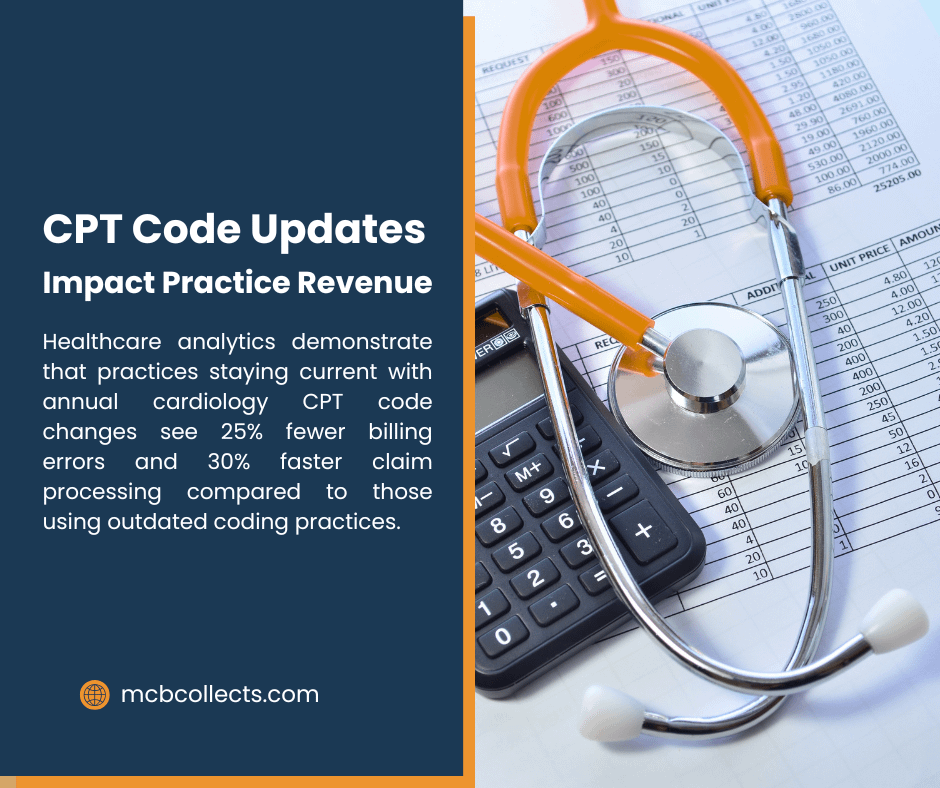
Professional development opportunities through coding associations and specialty organizations help billing staff stay current with cardiology coding changes. Investment in education directly translates to improved billing accuracy and revenue performance.
Quality Assurance in Cardiology Billing
Quality assurance programs help practices maintain high standards in cardiology CPT code application and documentation. Regular chart reviews, coding audits, and performance monitoring identify areas for improvement.
Benchmark data comparison allows practices to evaluate their coding accuracy against industry standards. This analysis helps identify training needs and process improvements for better billing performance.
External auditing services can provide objective assessments of cardiology billing practices and recommend improvements. These evaluations help practices proactively address potential compliance issues before they result in penalties.
Future Trends in Cardiology CPT Coding
Technological advances in cardiac care continue to drive new CPT code development and revisions to existing codes. Practices must stay informed about these changes to maintain billing accuracy and compliance.
Telemedicine expansion has introduced new billing considerations for cardiology services delivered remotely. Virtual consultations, remote monitoring, and digital health platforms require specific coding approaches that differ from traditional in-person services.
Value-based care models are beginning to influence cardiology billing through quality metrics and outcome-based reimbursement structures. These changes may affect how practices approach CPT code selection and documentation requirements.
Key Takeaways for Cardiology CPT Code Success
Successful cardiology billing requires thorough knowledge of procedure-specific CPT codes, comprehensive documentation practices, and ongoing compliance monitoring. Practices must invest in proper training, technology, and quality assurance programs to optimize revenue cycle performance.
Professional billing services can provide the specialized expertise needed for complex cardiology coding requirements. These services offer continuous education, compliance monitoring, and revenue optimization strategies that benefit cardiac practices.
Regular performance monitoring and process improvement initiatives help practices maintain high standards in cardiology billing. Investment in proper coding practices directly translates to improved cash flow and reduced compliance risks.Ready to optimize your cardiology billing performance? MCB Collects specializes in cardiovascular practice billing with expert knowledge of cardiology CPT codes and documentation requirements. Our denial management services can help reduce claim rejections while our comprehensive revenue cycle solutions streamline your entire billing process. Contact us today to learn how our specialized cardiology billing expertise can improve your practice revenue and operational efficiency.



